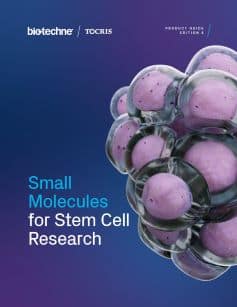Receptor Serine/Threonine Kinases (RSTKs)
Receptor serine/threonine kinases (RSTKs) are a group of related catalytic receptors that includes TGF-β receptors (TGF-βRI-III) and activin receptors (ALK1-7). RSTKs exist as heterodimers of type I and type II receptors and the ligand binding domain is located in the type II receptor. Upon ligand-receptor binding, the type I receptors are recruited to the complex and are phosphorylated by the type II receptor.
SMAD proteins are subsequently phosphorylated by activated type I receptors, which are specific to the subtype of RSTK; TGF-βR and ALK4/5/7 phosphorylate Smad2/3, whilst ALK1/2/3/6 phosphorylate Smad1/5/8. Activated Smads associate with Smad4 and are transported to the nucleus to regulate expression of specific genes. Transcription factors and co-factors form a complex with Smad and are responsible for gene expression. There are many human diseases caused by dysregulation of RSTK signaling. These include gastrointestinal, pancreatic and pituitary malignancies, embryonic left-right axis malformation, aortic aneurysm and Loeys-Dietz syndrome.
Literature for Receptor Serine/Threonine Kinases (RSTKs)
Tocris offers the following scientific literature for Receptor Serine/Threonine Kinases (RSTKs) to showcase our products. We invite you to request* your copy today!
*Please note that Tocris will only send literature to established scientific business / institute addresses.
